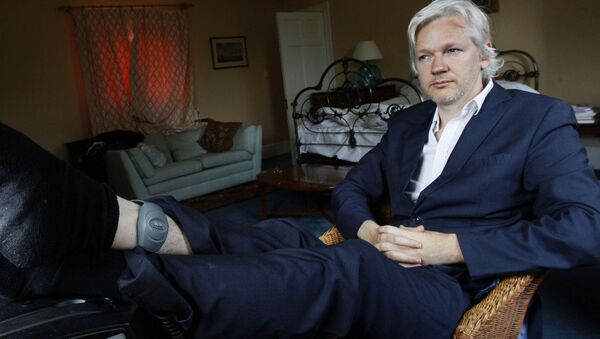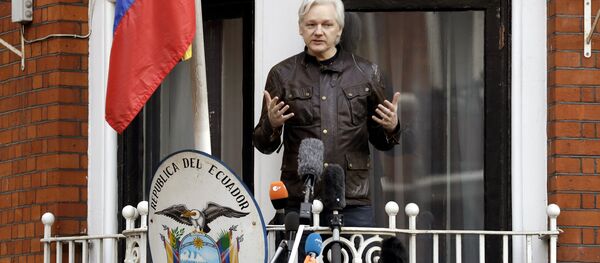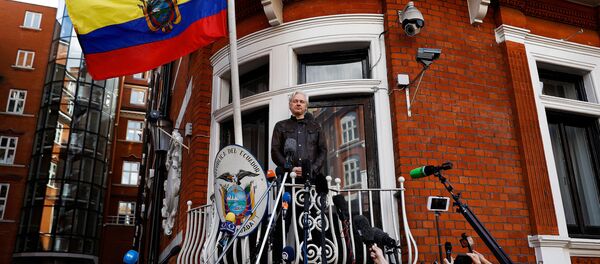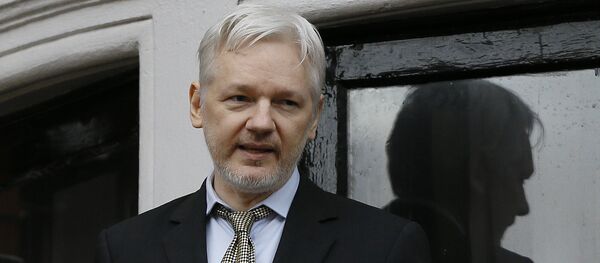Assange sued in an Ecuadorian court earlier this month, saying that increasing restrictions on his conduct, such as requirements that he clean up after his cat and that he pay for internet access, constitute violations of his "fundamental rights and freedoms" as an asylum seeker, Sputnik reported. He testified to the court in Ecuador's capital of Quito via Skype that the restrictions make it harder for him to receive guests and to receive medical attention.
The court dismissed Assange's plea, saying that his rights are not being violated because the Ecuadorian government owns the building and can, therefore, decide on the rules of conduct inside it. Nonetheless, an unnamed government official told Reuters that Assange is welcome to enjoy asylum inside the building for as long as he wishes, provided he continue to follow their rules.
Radio Sputnik's Loud & Clear spoke with Randy Credico, an activist, a comedian and a former director of the William Moses Fund for Racial Justice. Credico has visited Assange in the embassy three times and told the show about the conditions he witnessed first-hand there.
Credico said this isn't about his cat's mess at all, of course, not in the least because Assange's cat is clearly healthy, judging by Credico's visits to the embassy. Other complaints were equally ludicrous and intended to humiliate him, the activist said, such as the allegation he doesn't keep his bathroom adequately clean.
The real reason for Assange's troubles, Credio said, is that as early as April 2017, US Attorney General Jeff Sessions identified arresting Assange as a priority of the Justice Department. Since 2010, the DOJ has been investigating the website WikiLeaks, which Assange created in 2006 and which publishes leaked documents provided to it by whistleblowers and journalists, in relation to the "Collateral Murder" release of proof of US war crimes in Iraq by the former US Army specialist now known as Chelsea Manning.
Assange has been holed up in the Ecuadorian Embassy in London since June 2012, when he requested asylum from an investigation into alleged sexual offenses committed by him in Sweden. Even though that investigation was dropped in May 2017, Assange has refused to leave the embassy, believing he faces arrest and extradition to the US if he does.
Credico said the only option remaining is for both Assange and his supporters to "keep on fighting," noting that the campaign being waged against both Assange and WikiLeaks is part of a much larger "squeezing of alternate forms of information and alternative press… there's a concerted effort; they want to put the genie back in the bottle. But it may be too late for that."
The activist drew a comparison between what happened to journalist Jamal Khashoggi in the Saudi consulate in Istanbul and Assange's position, saying, "Instead of chopping him up, it's death by a thousand cuts." Credico said that the Ecuadorian government's efforts to push him out of the embassy by making life inside it "so bad" for him would fail, because "he's a man that's resilient, he's resourceful, he's got the kind of will that you rarely see in a human being, and he's been able to do it. He's got this major role in history."
"He has reached a martyr-type status while he's alive," Credico said, noting that the end result of the campaign against him is "gathering a storm of support for him."
Credico said that Lenin Moreno's new government in Quito was "trying every way without deliberately pushing him out" to get Assange to leave the embassy. "What's next, they're going to put tear gas in there?" he asked. He noted that the UN Office on Arbitrary Detention has said that Assange should be both freed and compensated for being forced to live in the embassy for the better part of a decade.




